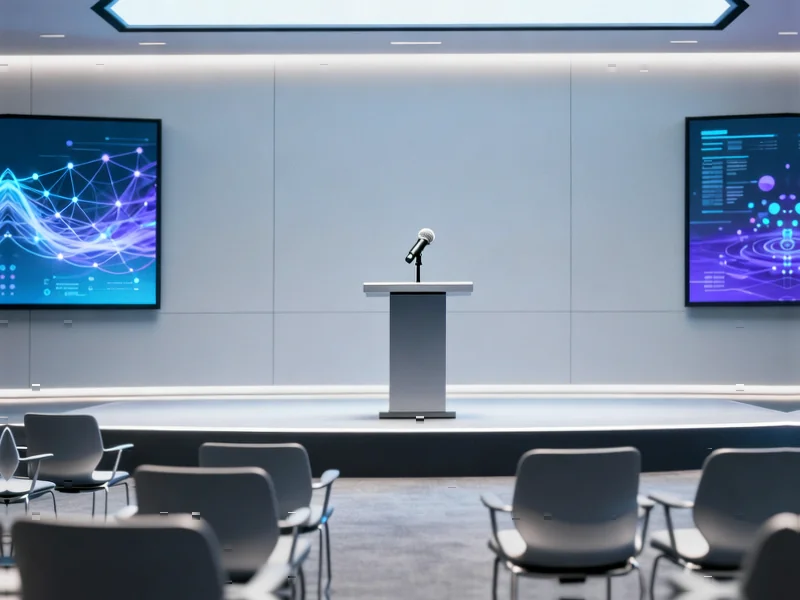According to Financial Times News, the US government has granted Microsoft permission to ship advanced Nvidia AI chips to the United Arab Emirates for the first time, marking a significant policy shift in technology exports. The approval follows a May deal between US President Donald Trump and UAE President Sheikh Mohamed bin Zayed al-Nahyan to construct a massive AI data center campus in Abu Dhabi. Microsoft President Brad Smith confirmed the company became “the first company to receive a licence under the Trump administration” in September after meeting “very stringent cyber security, physical security and other security requirements.” Microsoft now plans to increase its UAE investment from $7.3 billion over the past three years to more than $7.9 billion from 2026 to 2029, with $5.5 billion allocated specifically to AI and cloud infrastructure capital spending. This development signals a major evolution in how the US approaches AI technology exports to strategic Middle Eastern partners.
The Geopolitical Chessboard Reshaped
This approval represents a fundamental recalibration of US technology export policy that extends far beyond simple business expansion. The Middle East has become a critical arena in the broader US-China competition for AI supremacy, and this move strategically positions the UAE as a Western-aligned AI hub. By allowing Microsoft to deploy cutting-edge Nvidia hardware in Abu Dhabi, the US effectively creates a technological bulwark against Chinese influence in the region. This isn’t merely about Microsoft’s business interests—it’s about establishing a beachhead for Western AI standards, security protocols, and technological ecosystems in a region where China has been aggressively pursuing its own partnerships. The timing is particularly significant given ongoing tensions in US-China relations and the increasing weaponization of technology supply chains in geopolitical maneuvering.
The Security Framework Precedent
The cybersecurity and physical security requirements Microsoft had to meet set a crucial precedent for future AI infrastructure exports. While specific details remain classified, the “stringent” standards likely involve comprehensive data sovereignty protocols, encryption standards, access controls, and monitoring mechanisms that ensure US technology isn’t compromised or diverted. This creates a template for how other US companies might gain similar approvals for sensitive technology exports to allied nations. The successful implementation of these security measures in the UAE could pave the way for expanded AI technology sharing with other strategic partners like Saudi Arabia, Israel, and key European allies. However, this also raises questions about how these security frameworks will evolve as AI systems become more complex and autonomous.
Regional AI Development Accelerated
Microsoft’s expanded $5.5 billion commitment to AI and cloud infrastructure represents one of the largest single AI investments in Middle Eastern history. This will dramatically accelerate the region’s AI capabilities, potentially creating a hub that serves not just the UAE but surrounding markets across Africa, Asia, and the broader Middle East. Local developers and enterprises will gain access to computational resources that were previously geographically distant or legally restricted, enabling faster iteration on Arabic-language AI models, region-specific applications, and specialized industry solutions. However, this concentrated investment also risks creating an AI divide within the region itself, with the UAE pulling further ahead of neighboring countries that lack similar political relationships with Western technology providers.
The Global AI Infrastructure Race
This development significantly alters the competitive landscape for AI infrastructure providers. While Nvidia clearly benefits from expanded hardware sales, the bigger story is how Microsoft’s Azure cloud platform gains a strategic advantage in a rapidly growing market. Competitors like Amazon Web Services and Google Cloud now face pressure to secure similar export approvals or risk ceding ground in a region with enormous digital transformation potential. The timing is particularly advantageous for Microsoft as global demand for AI computing capacity continues to outstrip supply. By establishing a beachhead in the UAE with the latest Nvidia technology, Microsoft positions itself as the preferred partner for multinational corporations seeking to deploy AI solutions across Middle Eastern and African markets while maintaining compliance with US export regulations.
Broader Implications for Tech Diplomacy
The Microsoft-UAE approval establishes a new model for how advanced technology exports can serve dual purposes—commercial expansion and strategic alignment. This approach likely signals a more nuanced US policy toward technology controls, moving beyond blanket restrictions toward case-by-case approvals based on security partnerships and geopolitical considerations. Other nations seeking access to cutting-edge US AI technology will now have a roadmap to follow, though the specific security requirements and political relationships needed to secure similar approvals remain substantial barriers. As AI becomes increasingly central to economic and military competitiveness, we can expect to see more of these carefully negotiated exceptions that balance commercial interests with national security concerns in an increasingly multipolar technological landscape.



